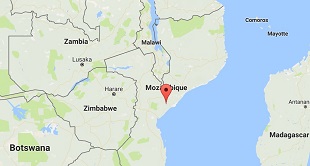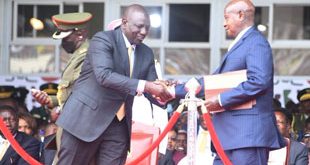– ‘Inappropriate step’ –
“This includes an acceptance of Commonwealth fundamental values and principles, such as a commitment to democracy, the rule of law and independence of the judiciary, the protection of human rights, and equality of opportunity.”
Togo’s political opposition and human rights campaigners have expressed concerns about the bid for membership.
“It’s an inappropriate step. It’s just a song and dance for the international community,” said Eric Dupuy, spokesman for the main opposition National Alliance for Change Party.
“We have other priorities, particularly constitutional and institutional reform… which the current regime refuses to implement.
“These reforms will allow us to have transparent elections acceptable for everyone.”
Togo’s constitution was amended in 2002 but since then the opposition has been pressing for it to be revised further.
In particular it wants the reintroduction of a 10-year limit on presidential mandates.
It also wants two-round elections, a restructuring of the constitutional court and the independent national electoral commission, which organises and oversees elections.
President Gnassingbe came to power in 2005 after the death of his father, Gnassingbe Eyadema, whose dictatorial rule lasted 38 years.
Gnassingbe won elections in 2005, 2010 and 2015, but the opposition rejected the results.
Human rights groups say arbitrary arrests, detentions, torture and other ill-treatment are commonplace in Togo, as are impunity and restriction on free speech.
Some 500 people are said to have been killed in violence linked to the 2005 vote.
Reporters Without Borders ranked Togo 88th in its press freedom index last year and said the government controlled information through dominant state media.
Amnesty International’s Togo director, Aime Adi, said the human rights situation “remained fragile”.
“We still see the use of the army to police peaceful demonstrations with deaths of protesters… intimidation of opposition figures and banning activities of opposition parties,” he said.
 The Independent Uganda: You get the Truth we Pay the Price
The Independent Uganda: You get the Truth we Pay the Price


